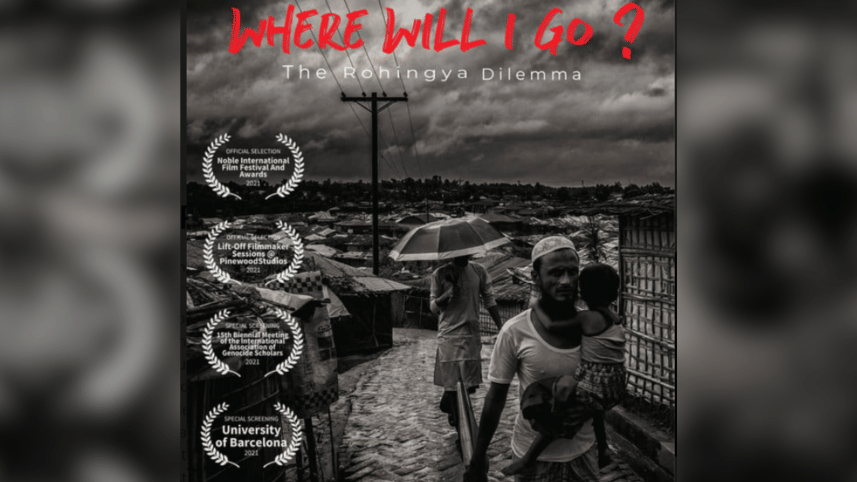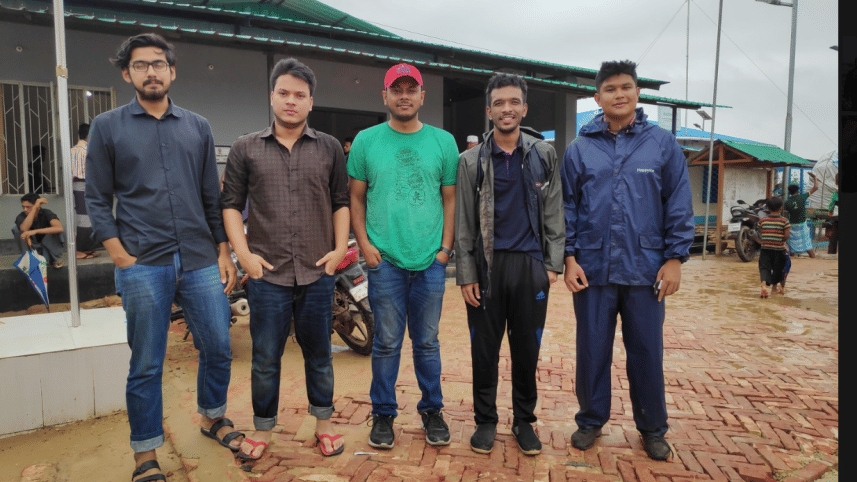‘Where Will I Go’: Documentary sheds light on Rohingya refugee crisis

On the occasion of Refugee Day, a thought-provoking documentary titled "Where Will I Go" delves into the harrowing experiences of Rohingya refugees who have sought sanctuary in Cox's Bazar. The film, directed and produced by Khalid Rahman, aims to raise awareness about the inhumane conditions, violence, and oppression endured by the Rohingya people in Myanmar
With a focus on legal recognition, justice for the victims, and global outreach, this documentary serves as a crucial tool for advocating the rights of the Rohingya community.

Driven by the urgent need to address the Rohingya crisis, Khalid Rahman, a teacher, lawyer, and freelance photographer, collaborated with executive producers SM Faisal Abrar and Fahim Quddus Priyo to create this impactful documentary. The team, composed of law students from the American International University, worked tirelessly to shed light on the atrocities committed against the Rohingya population.

Talking about the inspiration for making this documentary, Khalid Rahman expressed, "Motivated by the strength and resilience of the Rohingyas, I began researching their history of oppression. Realising the need for broader awareness, I turned to documentary filmmaking as a powerful medium to amplify their silenced voices and shed light on their plight. This film aims to expose the horrific persecution faced by the Rohingyas, who have endured unimaginable hardships and seek justice and a chance to return to Myanmar."
Producer and director Md. Khalid Rahman revealed that his team visited the Rohingya camp multiple times, conducting interviews with individuals of all ages. Through these firsthand accounts, the documentary uncovers the persecution, discrimination, and systemic violence inflicted upon the Rohingya people in Myanmar.
"We heard horrifying testimony of the persecution of the Rohingyas while interviewing the survivors. The survivors talked about the brutality that knows no bounds. During our shooting at the camps, one of the male Rohingya survivors described one incident of raping and torturing the victims while living in his village. We included a couple of those people's testimony in the film at the post-production stage. Listening to this horrific incident was one of my most shocking experiences during the project," shared Khalid.

There have only been a few overseas screenings of this film in different film festivals across the world, including the IAGS2021 Conference in Barcelona, along with other documentary films, including "Muktir Gaan" by Tareque Masud and Catherine Masud. The film was welcomed by researchers, genocide scholars, and other filmmakers. Following the public release of the documentary trailer, the people of Bangladesh might have shared diverse opinions on the Rohingya repatriation.

"This documentary has raised a favourable attitude towards the Rohingyas since its goal is to provide a forum for discussion and collaboration in order to promote a concerted effort for the repatriation of the Rohingyas. I also believe an optimistic conclusion is possible with the cooperation of the international community as well as the tolerance and compassion displayed by the citizens of our country towards Rohingyas," said Khalid Rahman.
"Where Will I Go" serves as a powerful testament to the indomitable spirit and resilience of the Rohingya people. By bringing their stories to light, this documentary strives to ignite global compassion, demand justice for the victims, and advocate for the restoration of Rohingya rights.
As the international community joins hands on Refugee Day, it is imperative that the plight of the Rohingya population remains at the forefront of our collective consciousness, paving the way for a brighter and more inclusive future.




 For all latest news, follow The Daily Star's Google News channel.
For all latest news, follow The Daily Star's Google News channel.
Comments